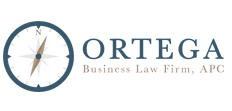Background Checks
Article 1, Section 1 of the California Constitution guarantees employees privacy rights. This disallows employers from intruding into their employees’ personal lives. Nonetheless, employers can obtain certain background information about job applicants and employees through sources such as background checks, which may disclose the job applicant’s or the employee’s:
- Immigration status and records
- Credit reports
- Felonies or any other criminal convictions
Employers must, however, be mindful of the Constitutional protections accorded job applicants and employees regarding their personal information.
California’s “ban the box” legislation, for instance, limits an employer’s research into a job applicant’s criminal history. An employer cannot inquire about an applicant’s criminal history until they make a conditional offer of employment to the applicant.
The “ban the box” legislation, also known as Assembly Bill 1008, prevents the exclusion of a job applicant from employment based solely on their criminal history, without an individualized assessment. These assessments analyze certain factors pertaining to the criminal offense, such as its severity, the time in which the job applicant committed the offense, and the nature of the position to which the applicant is applying.
Medical Records
General Medical Records
Employee medical records are highly confidential.
In addition to an employee’s Constitutional right to privacy, the Health Insurance Portability and Accountability Act (HIPAA), a federal law which establishes standards for the privacy of health information, requires employers to protect medical records as confidential information that is maintained separate from other business records.
Additionally, the California Confidentiality of Medical Information Act (CMIA), a California law that protects an individual’s identifiable medical information, and the Information Practice Act, also require the confidential treatment of an employee’s medical information.
California employers must therefore ensure the confidentiality of their employees’ medical records, which includes their protection from unauthorized use and disclosure and their separation from an employee’s other personnel records and information.
COVID-19 Medical Information
This is particularly important in the age of COVID-19, where employers must navigate the treacherous waters brought by the pandemic.
Employers must maintain the confidentiality of an employee’s COVID-19 information, yet balance that confidentiality with the safety of all of the employer’s employees. For instance, an employee’s COVID-19 “status” is considered medical information and therefore subject to both federal and state privacy laws. Therefore, if any employee reports that they have tested positive for COVID-19 or have been exposed to someone who has, the employer must ensure the confidentiality of this information, yet the employer must also notify co-workers that they have been exposed. These competing rights present a challenge to employers.
The California Department of Fair Employment and Housing created guidelines in March 2021 as an aid to balancing these requirements:
- Employers should not identify any affected employees by name in the workplace to ensure compliance with privacy laws.
- If an employee tests positive for or is suspected to have COVID-19, the employer will need to follow the most current local, state, or federal public health orders and guidance.
- Employers should take further steps at the direction of public health authorities that may include closing the worksite, deep cleaning, and permitting or requiring telework.
- Employers may notify affected employees in a way that does not reveal the personal health- related information of an employee. For example, the employer could speak with employees or send an email or other written communication stating : “[Employer] has learned that an employee at [office location] tested positive for the COVID-19 virus. The employee received positive results of this test on [date]. This email is to notify you that you have potentially been exposed to COVID-19 and you should contact your local public health department for guidance and any possible actions to take based on individual circumstances.”
It is also salient for employers to streamline employee COVID-19 information by identifying one person, trained and knowledgeable in human resources management, as the recipient of such information.
Electronic Surveillance In the Workplace.
With the ever-expanding cyber threats affecting employers nationwide, many employers have are using electronic surveillance to protect their information from outside and inside threats. It is nonetheless important for employers to understand that while privacy expectations can be lessened in the workplace, they continue to exist.
California allows video surveillance in the work place for security purposes; however, employers should take certain precautions to mitigate their risk. At a minimum, employers should:
- Notify all employees must be notified of the presence of such equipment before the employee enters the work space.
- Avoid placing the video cameras in places considered private, such as restrooms, locker rooms or rooms designated for changing clothes, or where the employee expects a reasonable degree of privacy.[1]
- Ensure that they are compliant with pertinent Local, State and Federal Regulations when installing video cameras in non-public workplace areas, such as offices.
- Create a policy that notifies the employee of the surveillance and an acknowledgement of the employee’s consent to be monitored.
- Not use surveillance to monitor an employee’s specific activities, such as union organizing.
- Not utilize audio capabilities unless both parties consent.
Although this article will not be going into the specificities of this Act, something both employees and employers should note is the new California Consumer Privacy Act (CCPA), which allows businesses to look into the personal information of consumers.
[1] California courts define an area as having a “reasonable expectation of privacy” if it has blinds, key access.

